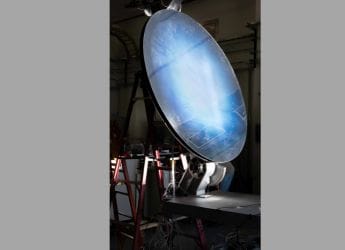- Home
- Mobiles
- Mobiles News
- Apple Asks Suppliers to Follow China Customs Rules Amid Sino US Tensions: Report
Apple Asks Suppliers to Follow China Customs Rules Amid Sino-US Tensions: Report
Apple iPhone assembler Pegatron said its mainland China plant is operating normally.

Photo Credit: Apple
Foxconn and Pegatron are ramping up manufacturing efforts to launch new iPhone models
Apple has asked suppliers to ensure that shipments from Taiwan to China comply with the latter's customs regulations to avoid them from being held for scrutiny, according to a Nikkei report on Friday.
Sino-US trade tensions have escalated following US House of Representatives Speaker Nancy Pelosi and a congressional delegation's visit to Taiwan.
The iPhone maker told suppliers that China had started enforcing a long-standing rule that Taiwanese-made parts and components must be labeled as made either in "Taiwan, China" or "Chinese Taipei", the report added, citing sources familiar with the matter.
Apple did not immediately respond to a Reuters request for comment.
Apple iPhone assembler Pegatron said its mainland China plant is operating normally, in response to a media report that shipments to Pegatron's factory in China were being held for scrutiny by Chinese customs officials.
Taiwanese supply and assembly partners Foxconn and Pegatron are ramping up manufacturing efforts as Apple is set to launch its new iPhone in September.
Meanwhile, Pelosi's trip To Taiwan coincided with US efforts to convince TSMC – the world's largest chip manufacturer, on which the US is heavily dependent – to establish a manufacturing base in the US and to stop making advanced chips for Chinese companies.
US support for Taiwan has historically been based on Washington's opposition to communist rule in Beijing, and Taiwan's resistance to absorption by China. But in recent years, Taiwan's autonomy has become a vital geopolitical interest for the US because of the island's dominance of the semiconductor manufacturing market.
Recently, the US Congress has passed the Chips and Science Act, which provides $52 billion (roughly Rs. 4,11,746 crore) in subsidies to support semiconductor manufacturing in the US. But companies will only receive Chips Act funding if they agree not to manufacture advanced semiconductors for Chinese companies.
© Thomson Reuters 2022
Get your daily dose of tech news, reviews, and insights, in under 80 characters on Gadgets 360 Turbo. Connect with fellow tech lovers on our Forum. Follow us on X, Facebook, WhatsApp, Threads and Google News for instant updates. Catch all the action on our YouTube channel.
Related Stories
- Samsung Galaxy Unpacked 2026
- iPhone 17 Pro Max
- ChatGPT
- iOS 26
- Laptop Under 50000
- Smartwatch Under 10000
- Apple Vision Pro
- Oneplus 12
- OnePlus Nord CE 3 Lite 5G
- iPhone 13
- Xiaomi 14 Pro
- Oppo Find N3
- Tecno Spark Go (2023)
- Realme V30
- Best Phones Under 25000
- Samsung Galaxy S24 Series
- Cryptocurrency
- iQoo 12
- Samsung Galaxy S24 Ultra
- Giottus
- Samsung Galaxy Z Flip 5
- Apple 'Scary Fast'
- Housefull 5
- GoPro Hero 12 Black Review
- Invincible Season 2
- JioGlass
- HD Ready TV
- Latest Mobile Phones
- Compare Phones
- Leica Leitzphone
- Samsung Galaxy S26+
- Samsung Galaxy S26 Ultra
- Samsung Galaxy S26
- iQOO 15R
- Realme P4 Lite
- Vivo V70
- Vivo V70 Elite
- Asus TUF Gaming A14 (2026)
- Asus ProArt GoPro Edition
- Huawei MatePad Mini
- Infinix Xpad 30E
- Huawei Watch GT Runner 2
- Amazfit Active 3 Premium
- Xiaomi QLED TV X Pro 75
- Haier H5E Series
- Asus ROG Ally
- Nintendo Switch Lite
- Haier 1.6 Ton 5 Star Inverter Split AC (HSU19G-MZAID5BN-INV)
- Haier 1.6 Ton 5 Star Inverter Split AC (HSU19G-MZAIM5BN-INV)














